Filter by
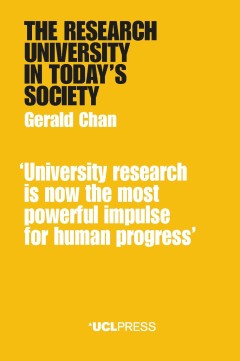
The research university in today's society
In this topical lecture, investor and philanthropist Gerald Chan examines the role of philanthropy in the rapidly changing higher education environment. He proposes that society will be short-changed if the purpose of universities is seen as human resource rather than humanity. Dr Chan argues that the independence of universities is crucial for maintaining the balance between their dual role as…
- Edition
- -
- ISBN/ISSN
- 9781911307600
- Collation
- 28p. : ill.
- Series Title
- -
- Call Number
- 371.206 CHA r
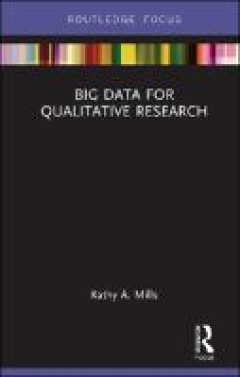
Big data for qualitative research
Big Data for Qualitative Research covers everything small data researchers need to know about big data, from the potentials of big data analytics to its methodological and ethical challenges. The data that we generate in everyday life is now digitally mediated, stored, and analyzed by web sites, companies, institutions, and governments. Big data is large volume, rapidly generated, digitally enc…
- Edition
- -
- ISBN/ISSN
- 9780429056413
- Collation
- xi, 90 p. : ill.
- Series Title
- -
- Call Number
- 001.42028557 MIL b

A global history of research education : disciplines, institutions, and natio…
This book’s chapters contain a mix of analysis and discussion looking in depth at the history of higher education. This text presents a global history of research education in the nineteenth and twentieth centuries. Chapters cover topics such as how disciplines are formed and research training, the rise of academic laboratory science, research mathematicians circa 1900 and research training i…
- Edition
- -
- ISBN/ISSN
- 9780192844774
- Collation
- IX, 387 p.
- Series Title
- History of Universities
- Call Number
- 378.009 GLO g
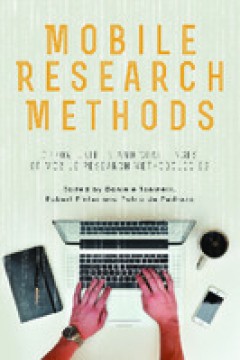
Mobile Research Methods : Opportunities and challenges of mobile research met…
Daily activity sees data constantly flowing through cameras, the internet, satellites, radio frequencies, sensors, private appliances, cars, smartphones, tablets and the like. Among all the tools currently used, mobile devices, especially mobile phones, smartphones and tablets, are the most widespread, with their use becoming prevalent in everyday life within both developed and developing count…
- Edition
- -
- ISBN/ISSN
- 9781909188549
- Collation
- 166p.
- Series Title
- -
- Call Number
- 302.231072 PAB m
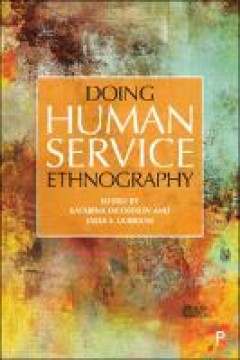
Doing human service ethnography
"EPDF and EPUB available Open Access under CC-BY-NC-ND licence. Human service work is performed in many places – hospitals, shelters, households – and is characterised by a complex mixture of organising principles, relations and rules. Using ethnographic methods, researchers can investigate these site-specific complexities, providing multi-dimensional and compelling analyses. Bringing toget…
- Edition
- -
- ISBN/ISSN
- 9781447355809
- Collation
- 242p. ; ill.
- Series Title
- -
- Call Number
- 305.8 KAT d

Shaping the digital dissertation : knowledge production in the arts and human…
"Digital dissertations have been a part of academic research for years now, yet there are still many questions surrounding their processes. Are interactive dissertations significantly different from their paper-based counterparts? What are the effects of digital projects on doctoral education? How does one choose and defend a digital dissertation? This book explores the wider implications of di…
- Edition
- -
- ISBN/ISSN
- 9781800641006
- Collation
- vi, 290 p.
- Series Title
- -
- Call Number
- 370 KUH s
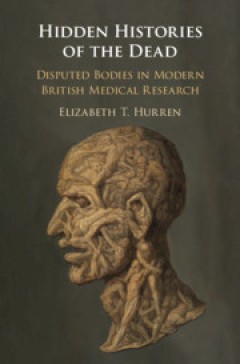
Hidden histories of the dead : disputed bodies in modern British medical rese…
In this discipline-redefining book, Elizabeth T. Hurren maps the post-mortem journeys of bodies, body-parts, organs, and brains, inside the secretive culture of modern British medical research after WWII as the bodies of the deceased were harvested as bio-commons. Often the human stories behind these bodies were dissected, discarded, or destroyed in death. Hidden Histories of the Dead recovers …
- Edition
- -
- ISBN/ISSN
- 9781108633154
- Collation
- xvii, 322 p. ; ill
- Series Title
- -
- Call Number
- 174.20941 HUR h

Economics without borders : economic research for European policy challenges
If treated as a single economy, the European Union is the largest in the world, with an estimated GDP of over 14 trillion euros. Despite its size, European economic policy has often lagged behind the rest of the world in its ability to generate growth and innovation. Much of the European economic research itself often trails behind that of the USA, which sets much of the agenda in mainstream ec…
- Edition
- -
- ISBN/ISSN
- 9781316636398
- Collation
- xxvi, 666 p. ; ill
- Series Title
- -
- Call Number
- 330.94 BLU e

Access to medicines and vaccines : implementing flexibilities under intellect…
This open access book is the outcome of a Global Forum on Innovation, Intellectual Property and Access to Medicines held in December 2019 at the Max Plank Instititute in Munich, organised by the South Centre and the Max Plank Institute. The academics and experts from international organisations participating have contributed chapters to this book. The book is for policy makers (in Ministries of…
- Edition
- -
- ISBN/ISSN
- 9783030831141
- Collation
- x, 369 p. : ill.
- Series Title
- -
- Call Number
- 346.0486 COR a

Discourses, dialogue and diversity in biographical research : an ecology of l…
This book explores how narratives are deeply embodied, engaging heart, soul, as well as mind, through varying adult learner perspectives. Biographical research is not an isolated, individual, solipsistic endeavor but shaped by larger ecological interactions – in families, schools, universities, communities, societies, and networks – that can create or destroy hope. Telling or listening to l…
- Edition
- -
- ISBN/ISSN
- 9789004465916
- Collation
- x, 226 p
- Series Title
- -
- Call Number
- 920.0072 BAI d
 Computer Science, Information & General Works
Computer Science, Information & General Works  Philosophy & Psychology
Philosophy & Psychology  Religion
Religion  Social Sciences
Social Sciences  Language
Language  Pure Science
Pure Science  Applied Sciences
Applied Sciences  Art & Recreation
Art & Recreation  Literature
Literature  History & Geography
History & Geography